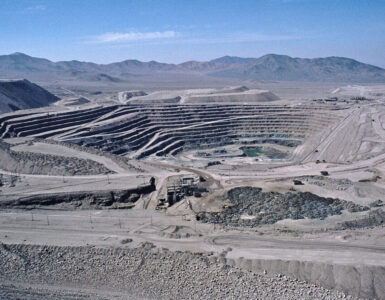With strong support from the state’s business community, the Arizona Corporation Commission on Tuesday voted 4-1 to adopt the recommendations of an administrative law judge in a rate case for Southwest Gas.
In testimony before the Commission, Arizona Manufacturers Council Executive Director Grace Appelbe called the judge’s recommended order, “a responsible one that will not only keep customer rates affordable but will also help encourage future economic growth and meet the demands of a growing state.”
The Arizona Chamber of Commerce & Industry entered into the record a recent opinion column by Chamber President and CEO Danny Seiden that urged commissioners to adopt the judge’s recommendation and to reject the arguments by environmental activists.
“The importance of natural gas to the Arizona economy is a fact that Southwest Gas’ critics either ignore or deny,” Seiden wrote. “There’s a predictable narrative that comes from out-of-state activist groups that are more interested in advancing an agenda untethered from the realities of today’s economy than they are in ensuring affordable energy rates for Arizona consumers.”
The Chamber also joined economic development groups Greater Phoenix Economic Council, Pinal Partnership, Sun Corridor, Inc., East Valley Partnership, and Greater Yuma Economic Development Corporation in supporting the judge’s recommendations.
The Southwest Energy Efficiency Project, known by its acronym SWEEP, led opposition to the Southwest Gas case, saying expanded electrification offers consumers cheaper alternatives and that the company already has modern infrastructure that requires few upgrades.
But José Perez of Hispanics In Energy pushed back against SWEEPS arguments, saying the group’s proposals would lead to higher energy rates.
“If adopted by the Arizona Corporation Commission, these policies would impose new costs on families, hurt jobs and foreclose on American ingenuity,” Perez wrote to commissioners, and he cited statistics that households that use natural gas for cooking, space and water heating and clothes drying save on average $1,041 per year compared to homes using electricity for those applications.
Perez said Arizona businesses’ ability to access natural gas is important to the state’s economic development.
“Celebrations like the one led by President Biden at TSMC just last month would not be possible if corporations could not secure necessary energy infrastructure,” he said.
Appelbe agreed, saying, “The adoption of SWEEP’s proposals would blunt future growth and create uncertainty. Arizona’s economy depends on a diverse energy portfolio – including natural gas – to prosper, whether it’s advanced manufacturing, health care, tourism, or agribusiness.”
Commissioner Nick Myers, who was elected to his first term in November, also said natural gas is an essential part of the Arizona economy.
“We can’t hinder not just our economic growth but our electric grids and water grids — everything is dependent on natural gas,” Myers said.
Two state senators, Sine Kerr, R-Buckeye, and Gail Griffin, R-Hereford, raised concerns over the effect SWEEP’s proposals would have on energy reliability.
“We only have to look to California to see firsthand the damaging effects that bad energy policy can have on a state,” the lawmakers wrote in a letter to commissioners. “Anti-natural gas policies that have originated in California, from phasing out natural gas power plants to eliminating new natural gas hookups, have only put greater demand on the state’s electric grid leading to higher electricity prices and a less reliable system. As a result, consumers have been faced with rolling blackouts and requests to avoid charging vehicles and using electric appliances to protect the strained grid.”
















Add comment